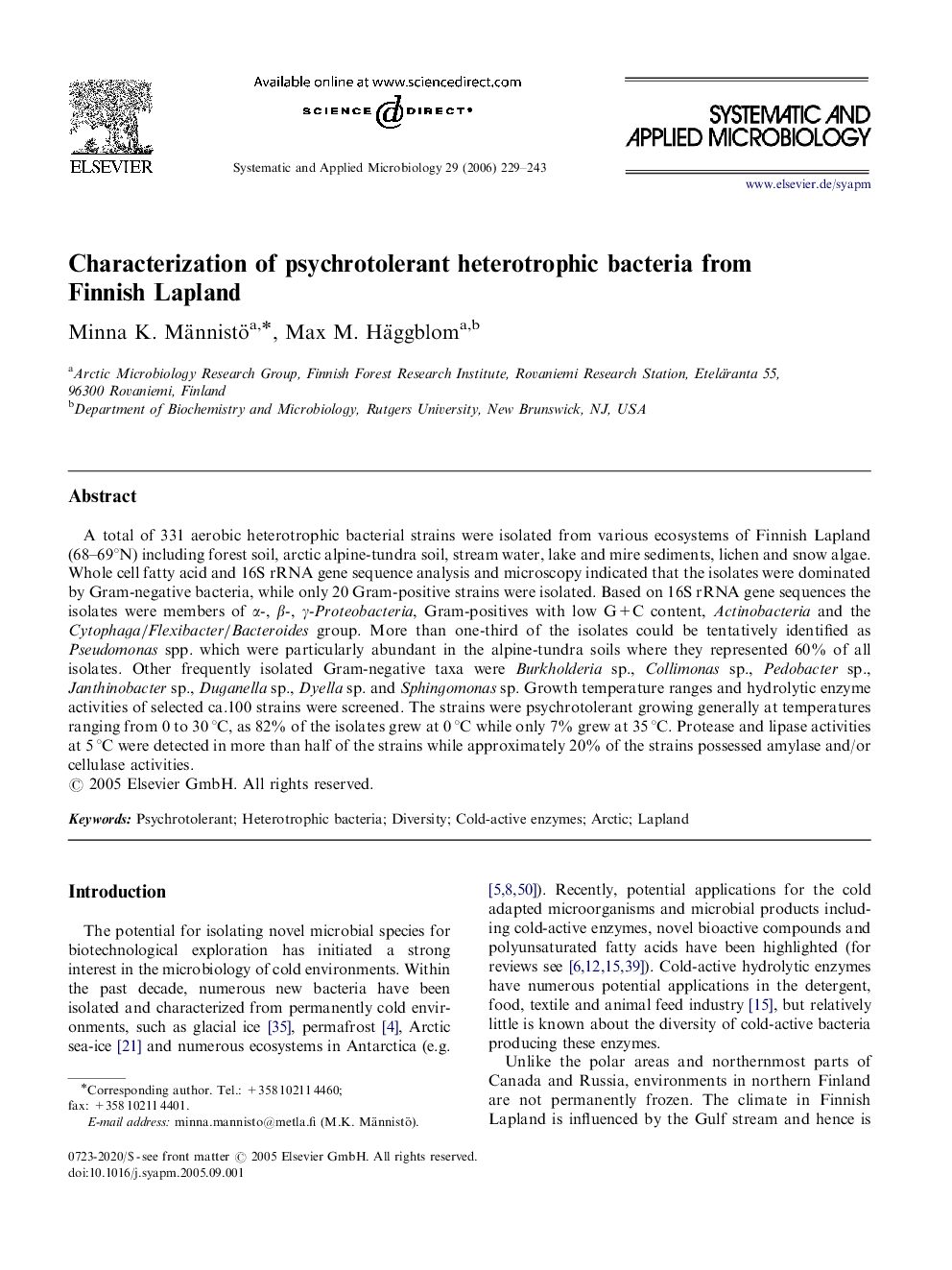| Article ID | Journal | Published Year | Pages | File Type |
|---|---|---|---|---|
| 2063932 | Systematic and Applied Microbiology | 2006 | 15 Pages |
A total of 331 aerobic heterotrophic bacterial strains were isolated from various ecosystems of Finnish Lapland (68–69°N) including forest soil, arctic alpine-tundra soil, stream water, lake and mire sediments, lichen and snow algae. Whole cell fatty acid and 16S rRNA gene sequence analysis and microscopy indicated that the isolates were dominated by Gram-negative bacteria, while only 20 Gram-positive strains were isolated. Based on 16S rRNA gene sequences the isolates were members of α-, β-, γ-Proteobacteria, Gram-positives with low G+C content, Actinobacteria and the Cytophaga/Flexibacter/Bacteroides group. More than one-third of the isolates could be tentatively identified as Pseudomonas spp. which were particularly abundant in the alpine-tundra soils where they represented 60% of all isolates. Other frequently isolated Gram-negative taxa were Burkholderia sp., Collimonas sp., Pedobacter sp., Janthinobacter sp., Duganella sp., Dyella sp. and Sphingomonas sp. Growth temperature ranges and hydrolytic enzyme activities of selected ca.100 strains were screened. The strains were psychrotolerant growing generally at temperatures ranging from 0 to 30 °C, as 82% of the isolates grew at 0 °C while only 7% grew at 35 °C. Protease and lipase activities at 5 °C were detected in more than half of the strains while approximately 20% of the strains possessed amylase and/or cellulase activities.
